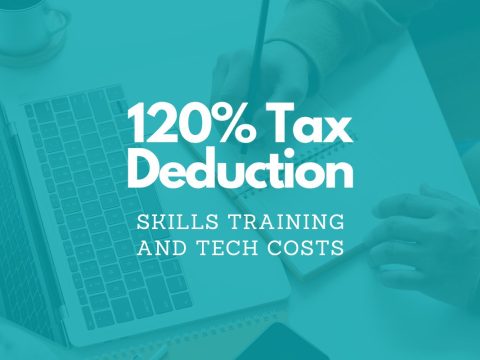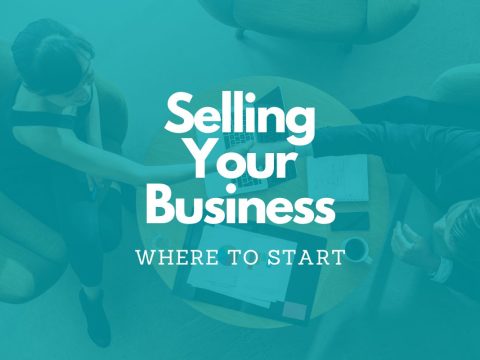What is equity crowdfunding and should you be paying attention?
Whether they are supporting a charitable cause, seeking finance for a creative project or launching a startup, fundraisers of all kinds are increasingly turning to crowdfunding platforms to help reach larger audiences of potential backers via the Internet.
Different crowdfunding platforms exist to help them securely raise funds for different purposes:
- Donation based platforms: enable people to donate money online to support a charitable cause e.g. a registered charity with deductible gift recipient status
- Rewards based platforms: enable people to support a creative project or product invention in return for an enticing non-monetary reward (e.g. kudos) or the future product itself
- Debt based platforms: enable people to support a project or business in return for interest as if they were banks; this practice is also known as peer-to-peer lending
- Equity based platforms: enable people to take an equity stake in a high-growth-potential business or alternative asset, even though shares in such assets are not publicly listed
In this post, we’re going to focus on the fourth point; equity crowdfunding for the early-stage business asset class.
And we’re not looking at this from the perspective of a fundraiser, but from the perspective of a potential investor. This is an exciting new trend for us all to research further and even consider as part of a well-diversified investment portfolio.
Why would you want a stake in such an early-stage business?
Investing in unlisted early-stage companies is a high-risk strategy that had, prior to crowdfunding, been more common among high net worth and well-connected investors. “Getting in on the ground floor” is something many people understand the value of in theory, but few have experience with.
Few would know where and how to invest in these assets at all, let alone in a manner consistent with their own risk profile, capacity and investment goals. It’s essential to do your research in addressing these issues before getting started and of course seeking professional advice.
Here are some reasons why people seem to be investigating equity crowdfunding (which is still very much a nascent industry in Australia) with such interest:
- Potential returns: while many early-stage companies fail, there are an increasing number of Australian success stories (especially among technology companies e.g. Atlassian, Canva and Afterpay; all “unicorn” companies valued at $1bn+) lending credence to the whole asset class. Whilst these examples are now very large and mostly listed, equity crowdfunding theoretically offers the possibility of finding and participating in the early or pre-IPO funding rounds of future unicorns. Assuming equity crowdfunding’s own popularity as a source of startup finance increases among founders, this will become increasingly likely over time.
Here’s a recent SmartCompany article on this topic, including the line: “Today, 52 companies founded by Australians since 2011 are worth more than $100 million. Fourteen companies are worth more than $500 million.”
- Diversification: some investors see this as an opportunity to diversify their investment portfolio by adding alternative asset classes including early-stage unlisted and proprietary companies. In such a low interest rate environment, regular retail investors are increasingly interested in exposure to local and international shares, ETFs and even bonds – so it makes sense to also consider adding an element of early-stage business exposure; especially in an idea, product or innovation you are personally passionate about.
- Innovation: like the technology “unicorns” listed above, many early-stage companies appearing on equity crowdfunding platforms are innovative in nature. Those who wish the Australian government or business community was doing more to fund R&D and keep us innovative as a nation may enjoy going directly to the source in the form of early-stage companies.
- Personal interests: building on the point above, individual investors may not only like a particular startup team or the innovation(s) they are working on, but they may also have a particular interest in supporting specific sectors or industries, which go by different monikers in technology startup circles, e.g. AgTech (agriculture), FinTech (banking and financial services), EdTech (education), MedTech (medical devices and services) and many more… Browsing through deals on equity crowdfunding platforms, an investor may find a startup working to solve a significant problem in a space they personally care about and understand.
- Give back: they say you shouldn’t invest anything you’re not prepared to lose when it comes to early-stage companies. That’s true. But we shouldn’t completely discount the personal satisfaction that comes with having financially supported someone having a go – especially in a space you care about. Investors who place value in backing certain causes, innovative entrepreneurs, or any other aspect of an early-stage business, may derive some enjoyment from participating in the process, even in the event of failure! Unusual as that may sound…
While early-stage companies are a high-risk prospect, it’s clear that the potential financial returns and satisfaction of supporting typically innovative entrepreneurs are two good drawcards to the asset class. The additional benefit of equity crowdfunding platforms enabling people to access more consistent deal flow (which will grow over time – it’s still early days!) and somewhat diversify their portfolios of these investments also helps de-risk this pursuit somewhat.
What is allowed under Australian legislation currently?
Retail investors are now eligible to take part in equity crowdfunding offers and ASIC has imposed rules on both companies and investors.
Investor protections:
- Retail (“mum and dad”) investors are capped to investing $10,000 per annum per company
- A CSF (crowd-sourced funding) offer document must be provided
- A 5-day cooling-off period must be allowed
Sophisticated or wholesale investors can invest without limits.
If you want to read up on the nitty-gritty, you will find an extensive range of resources on what’s allowed from ASIC: https://asic.gov.au/regulatory-resources/financial-services/crowd-sourced-funding/
A useful summary was published by Canstar earlier this year: https://www.canstar.com.au/investor-hub/equity-crowdfunding/
Where can you explore such investments currently?
What ASIC refers to as crowd-sourced funding intermediaries, we have been referring to equity crowdfunding platforms. You should ensure any platform you plan on dealing with is actually licenced by ASIC. As many platforms are startups themselves, you should shop around in terms of who you will invest through just as much as who you will invest in!
If you’re interested in learning more about equity crowdfunding or exploring the sorts of deals currently on offer, a quick Google search will reveal a range of options both local and international. Here are a few Australian options to ensure compliance with local rules:
- Venture Crowd (also offers equity crowdfunding on property development investments): https://www.venturecrowd.com.au/
- Equitise: https://equitise.com/
- Birchal: https://www.birchal.com/
No matter how appealing the deal may look, be sure to do your own due-diligence – it’s not advisable to just rely on the platform having done its own DD. Having said that, these companies are difficult to evaluate and won’t necessarily resemble the public companies you are used to researching. Some investors may take the approach of diversification (by investing in many deals) to de-risk rather than attempting to “pick winners.” Some may place a great emphasis on looking at founding team members and their track records as well as the advisors and investors they have attracted so far. Others may place value on backing startups working in particular spaces or towards specific causes, which they may be happy to support win or lose.
Whatever you use to justify your investment decision, we would advise doing your research, attending relevant educational events, speaking to experienced investors in the asset class and seeking professional advice where you can. Be sure to invest in this asset class in accordance with your own investment strategy, risk tolerance and goals! Just like any other.
We would be happy to assist you further if you would like to get in touch.
Allworths Wealth Management is a financial advisory and investment management firm based in Sydney. It forms part of the Allworths group, which traces its origins back to 1897 rural NSW.
Disclaimer
The content of this post is general in nature. Any general advice has been prepared by Allworths Wealth Management Pty Limited AFSL 457 155 without reference to your objectives, financial situation or needs. You should consider the advice in light of these matters and, if applicable, the relevant product disclosure statement before making any decision to invest.




